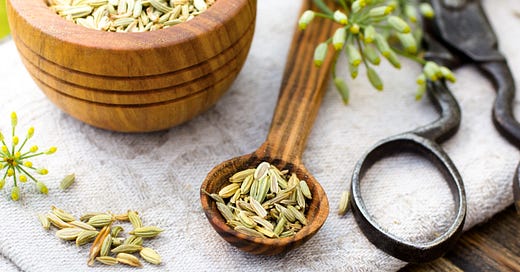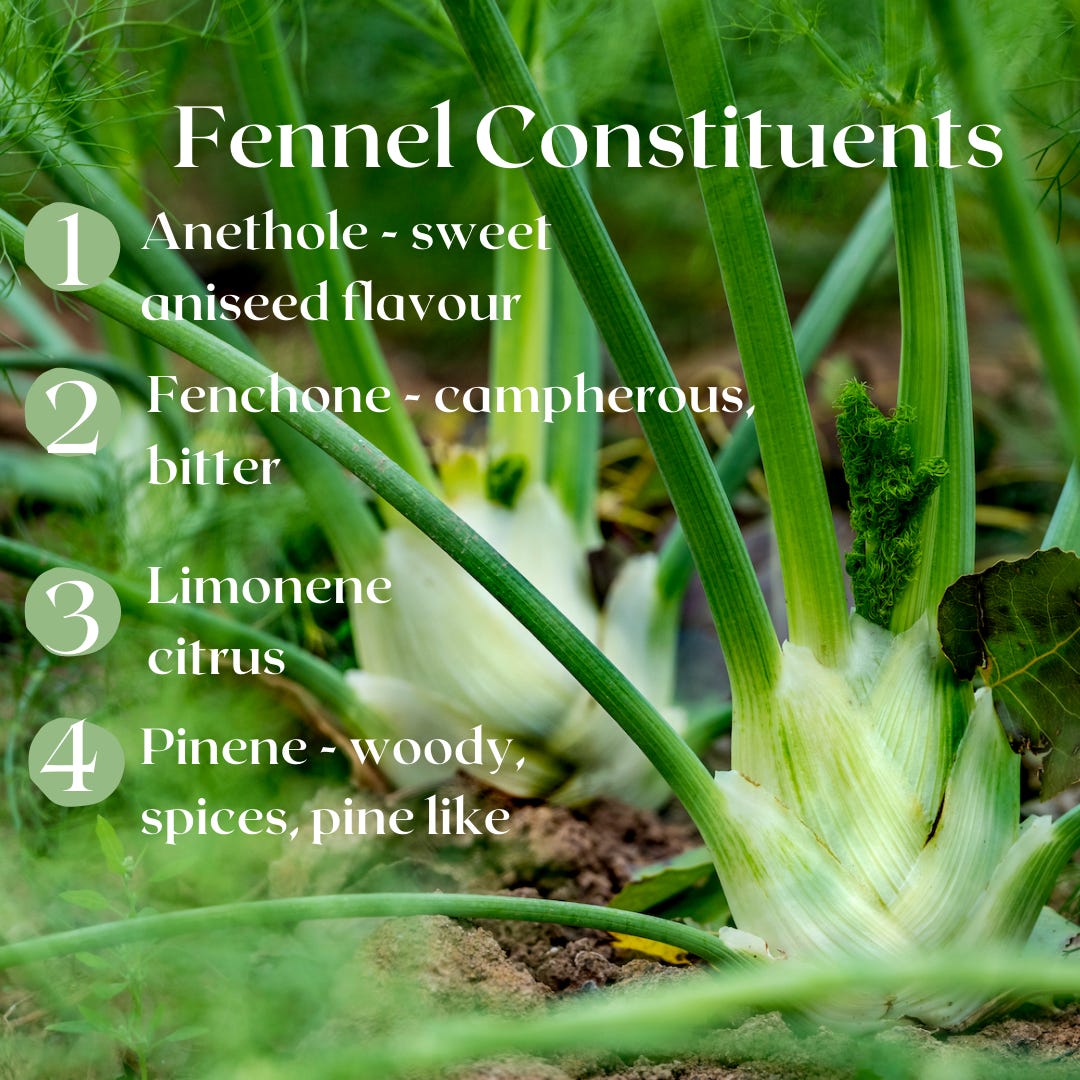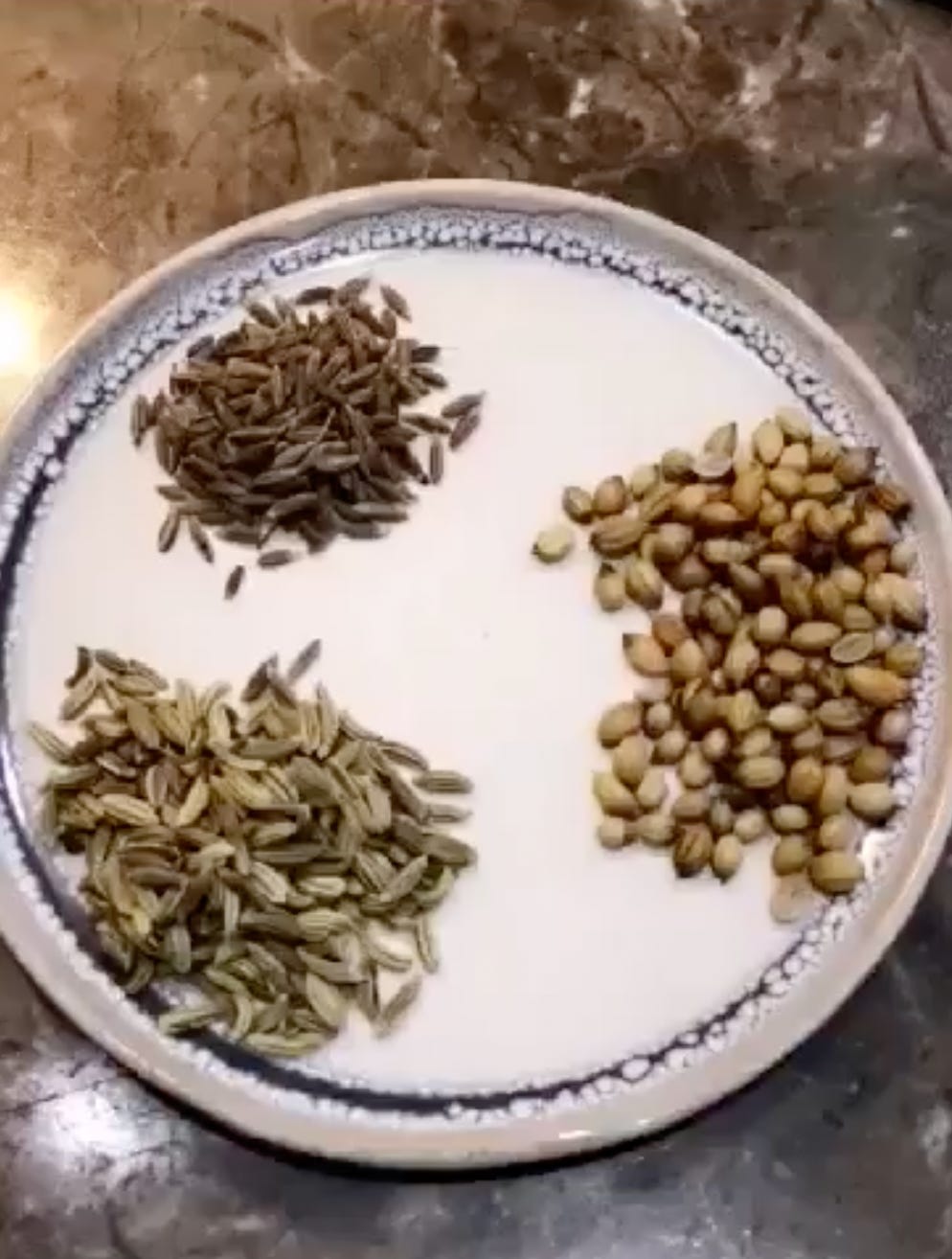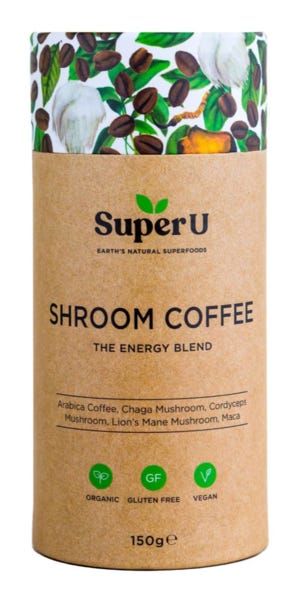A doctor's guide to Fennel (Foeniculum Vulgare)
This week we take a closer look at Fennel an ancient seasonal herb and staple food of the Mediterranean kitchen + premiere a new Youtube video on how the Bilberry fruit can protect our eye health 👀🍇
Herbalytes,
I wish you tidings on this Easter weekend. As we indulge in sweet treats, sunny days and well deserved time with family, I would like to quench your thirst for herbal knowledge by directing you to our latest blog on the constituents and medicinal properties of the fennel plant. We discuss the history of fennel, its use in weight loss regimes, how fennel is extracted into the Bohemian spirit Absinthe & discuss the plants medicinal use in dysmenorrhea (period pain) and infantile colic (intestinal spasm).
Here is an extract to whet your appetite.
Fennel & its Constituents
The fennel plant has a bulbous shape, with long fleshy stems and feathery fronds. The plant blooms yellow flowers in spring. Seeds are derived from the flowers during harvesting time in August.
The fennel plants comes in two forms: wild bitter fennel (Foeniculum vulgare Mill) and cultivated sweet fennel (Foeniculum Vulgare Dulce). The concentration of anetholes and fenchones determine whether the fennel is classed as bitter or sweet. The seeds of the fennel contain an essential oil, with has a sweet aniseed aroma due to the high concentrations of anetholes.
History
Fennel seeds contain lots of fibre, which makes you feel fuller for longer, thought to prevent binge eating, cravings and thus overeating. This theory is why Fennel is used in natural weight loss remedies. In Indian and Pakistani cultures, Mukhwas is an after dinner snack containing fennel, anise, coconut and sesame. It is used as a digestive aid and mouth freshener.
Fennel also makes an appearance in hedonistic culture, combining with Anise and Wormwood in an alcoholic tincture, first synthesised by Henriote Henriot as an antimalarial but marketed into the Bohemian spirit absinthe.
We also include a CCF (Cumin, Coriander and Fennel) Herbal Tea Recipe, a gentle yet effective decoction to aid digestion.
A doctor reviews Bilberry fruit for computer vision syndrome (dry eye treatment) 👁💚
Since the Covid Pandemic, I have been shocked at the amount of time I spend in front of a computer or mobile phone screen. Home working means many of us are spending more time in front of a screen than ever before. After lengthy screen time exposure, I suffer with dry and gritty eyes. In this video a doctor reviews a natural herbal hack to alleviate symptoms of dry eyes, improve digital eye strain and discusses how bilberry fruits can protect us from computer associated eye disease.
Introducing my first YouTube video. I have learnt a lot about videography, editing and presenting academic topics, in a simple and (hopefully) entertaining manner. I hope you can look past a technical glitch in the uploading procedure, to understand what makes these berries, packed with phytonutrients, so special in protecting our eyes from excessive amounts of screen time! The personal development I gain from learning these new technical skills, will only improve the quality of our content and keep providing you, our dedicated herbal community, with amazing wellness hacks.
Herbal 💚
Dr Adam Sayedi
P.S
Super U Shroom Coffee
Super U are a natural superfood brand based in Newcastle, UK and founded by the GBEA Health and Wellbeing entrepreneur of the year Charlotte Bailey and her cofounder Sean Ali. Their user friendly blends contain a multitude of health boosting ingredients which I can’t wait to put under the spotlight. We may even have a little surprise for you too 👀
Subscribe to our channel and don’t miss out on: a Doctor’s Review of Super U Shroom Coffee (Cordyceps, Lions mane, Chaga).






